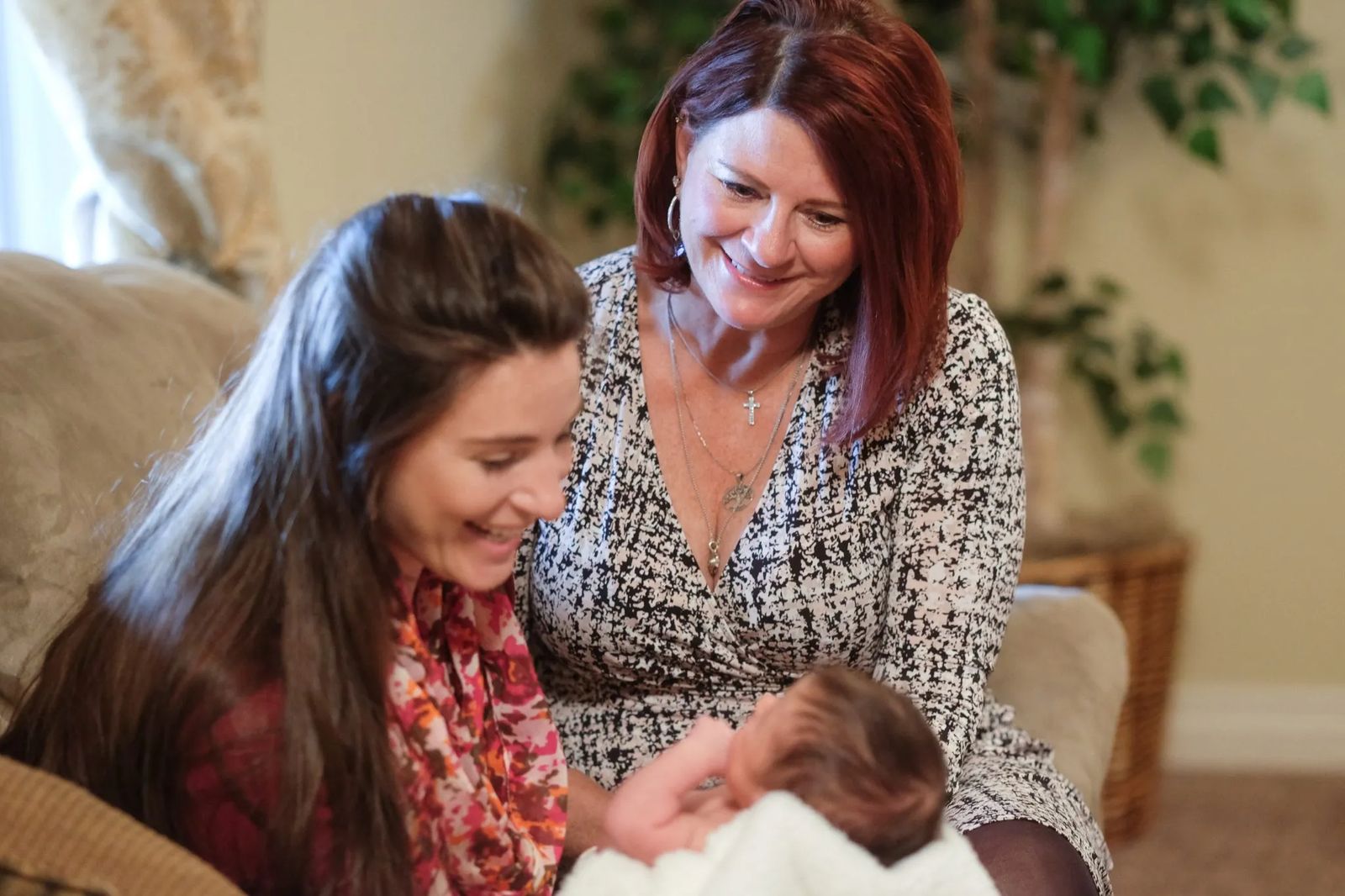
Cover Story: Caring For Life
Sharon Bonogofsky-Parker reaches across Billings & the world
One of Sharon Bonogofsky-Parker’s earliest memories is sitting on her daddy’s lap with her nurses’ kit – taking his temperature and checking his ears. For as far back as she can remember, there was never a question in her mind what she was going to be when she grew up.
“I knew from a very young age I was going to be a nurse,” says Sharon. “I never thought twice about it.”
Although today she can reflect back on a 40-year career in nursing, Sharon’s vocation has been more than just an occupation. It’s been the common thread in a life story of contrast – of love and loss, happiness and heartbreak, combat and calm – but above all, of a residing faith and a deep passion for attending to women and babies and caring for life.
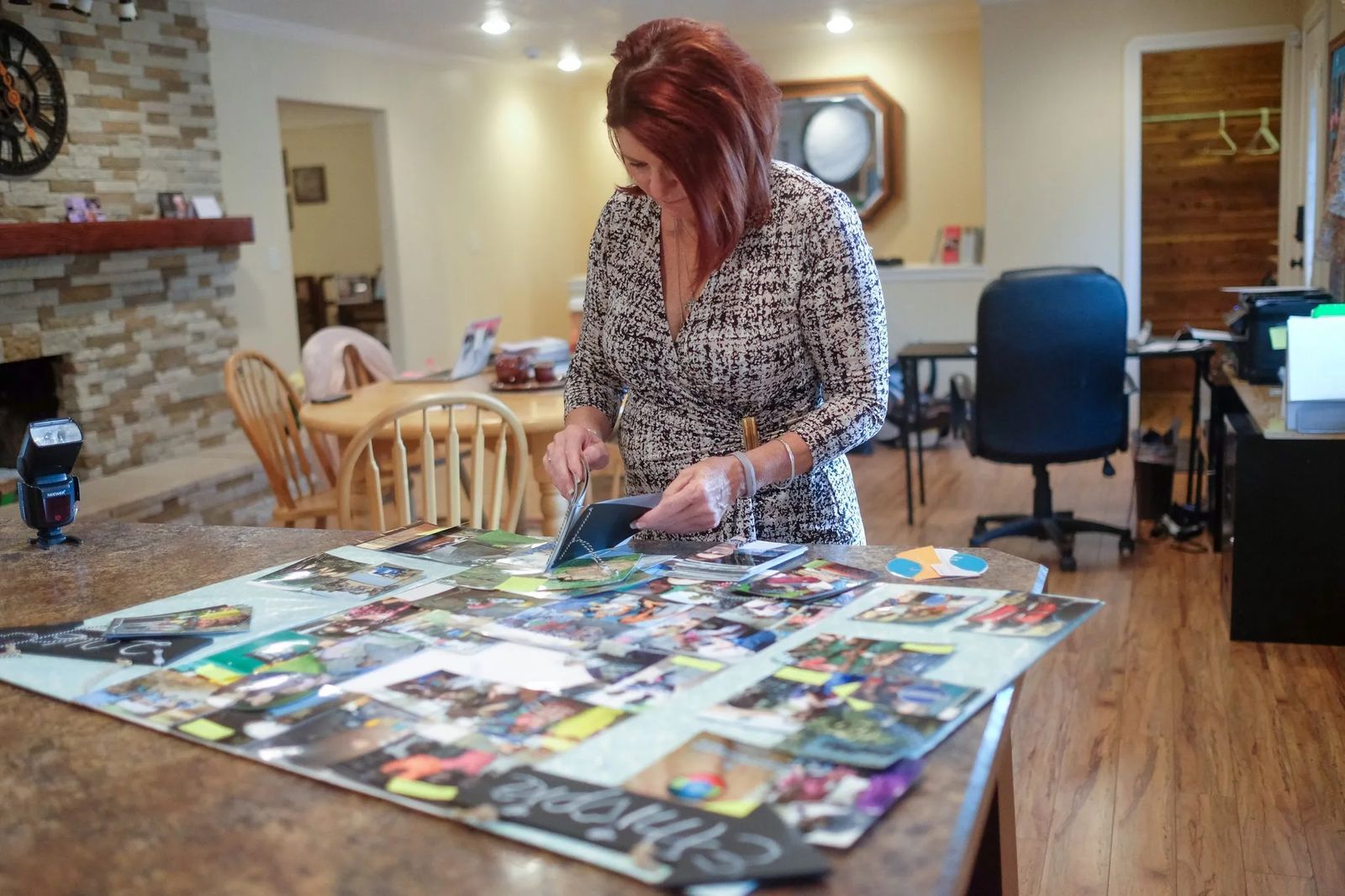
At a young age, she endured the hardship of losing her father, and then later celebrated the joy of a new stepfather who completed their family. She went through a divorce when her children were young, raising them almost solely as a single parent. She retired from a successful military career that included a combat tour during Desert Storm and evacuation of her children back to the United States. She found love later in life, only to lose her second husband of nine years to cancer. She has fought for life and counseled women on choices, while memories of a certain unplanned child lingered.
Today, as her tapestry continues to be woven, Sharon has found a new passion for ministering to women and infants in developing countries through her nursing and her life experiences. This past summer she traveled to Ethiopia to provide safe birthing kits to impoverished women, and next year plans to offer care in Nicaragua, all the while working to develop a source of sustainable supplies for a hidden little orphanage that captured her heart.
Growing her wings
After high school graduation, Sharon headed to Montana State University in Bozeman, where she obtained a bachelor’s of science in nursing. With a degree under her belt, Sharon was ready to go to work and take on new challenges. The United States Air Force offered that opportunity, and Sharon launched a military career that would span 18 years, take her around the world, and provide schooling to become a nurse practitioner and practice women’s health care.
“From day one, I always had a deep interest in maternal-child nursing – I enjoyed working with moms and babies, and that has remained my passion,” she says.
In 1990, as Operation Desert Shield was building, Sharon was called to do a tour of duty at Incirlik Air Base in Turkey, taking her children with her. By December, she requested emergency leave to return briefly to the states. “I had seen tensions were building, so I requested leave to take my first- and second-grade children back to the U.S., and I left them in the care of my parents.”
She returned January 1st. Nineteen days later, the order came to evacuate non-essential personnel and the Gulf War officially began. At the end of that “relatively brief conflict,” Sharon says she was told children would not be allowed back on base, and she requested a humanitarian reassignment to return back home.
By 1992, Sharon was stationed at Malmstrom Air Force Base in Great Falls and approaching her 20-year retirement, but was struggling with staying in the service. When President Clinton began to offer early military retirement to select career groups, she took the opportunity. She retired from the Air Force as a major, moved to Billings and returned to civilian life.
Second verse as a nurse
The transition from service was not as smooth as she had envisioned. With a retiree’s worth of experience, Sharon struggled to find a job that matched her skill set and value system. She worked as a nurse practitioner for what today is RiverStone Heath, on the maternity floor at St. Vincent Healthcare and as a nurse for a private practice OB doctor. Her connections led to a board appointment on the local pregnancy outreach clinic, now known as LaVie.
“LaVie is where I really learned about unconditional love, and how to just check your judgments at the door,” says Sharon. Eventually, she transitioned from a volunteer position to working as a staff nurse and counseling women in unplanned pregnancies.
“No matter what decision she makes, she is going to be loved, explained her options and told the truth,” she says. “The truth is never the problem — she might have a problem, but the truth is never the problem.”
Love and loss
In 2005, a friend set Sharon up on a blind date that would come to change her life. “It was as near to love at first sight as it could be,” she says. Her first meeting with Budge Parker, battalion chief at the Billings Fire Department, turned into a four-hour lunch. “I immediately told my friends, ‘I’m going to figure out a way to have that man marry me!’”
They were married Labor Day weekend of 2006, and a new era of adventure began interweaving their lives. Parker retired three months later, and although Sharon continued to work part-time as a lactation consultant, they had time to travel. “We visited the Galapagos Islands, Peru, Chile, Hawaii, and Australia, rode our Harleys, and enjoyed almost every Bobcat football game in Bozeman,” reminisces Sharon. She became an instant grandmother and helped care for Parker’s elderly mother. In September 2013, Parker was diagnosed with stage 4 esophageal cancer and told he had one year to live. “We made a bucket list and did as much as we could,” she says.
During the same time, Sharon’s sister found out she had leukemia and spent six months in Denver undergoing a bone marrow transplant, where she required around-the-clock assistance. Sharon spent several care intervals with her sister at the same time Parker was undergoing treatments. A tattoo on Sharon’s left arm reads, "Budge, Cindy, I surrender”, which symbolizes the trials of this time in her life.
Her sister survived the cancer, her husband did not. “He went to heaven a year later, one day after our ninth anniversary. I owe a tremendous amount of gratitude to so many people for their support — especially his brothers on the fire department — during this time.”
Sharon was once again starting a new chapter in her life, one she had not planned on.
Nurturing new cultures
Along with her nursing work and travels, Sharon maintained her massage practice specializing in prenatal care and breastfeeding teaching at First Breath Midwifery in Billings. Katrina Rauch is the owner and a midwife at First Breath. In the spring of 2016, Rauch says she felt strongly called to minister to the women of Ethiopia through a trip to provide safe birthing kits (see sidebar), increasing the survival rate of infants and mothers. Rauch approached Sharon about taking part in their “orphan prevention mission.”
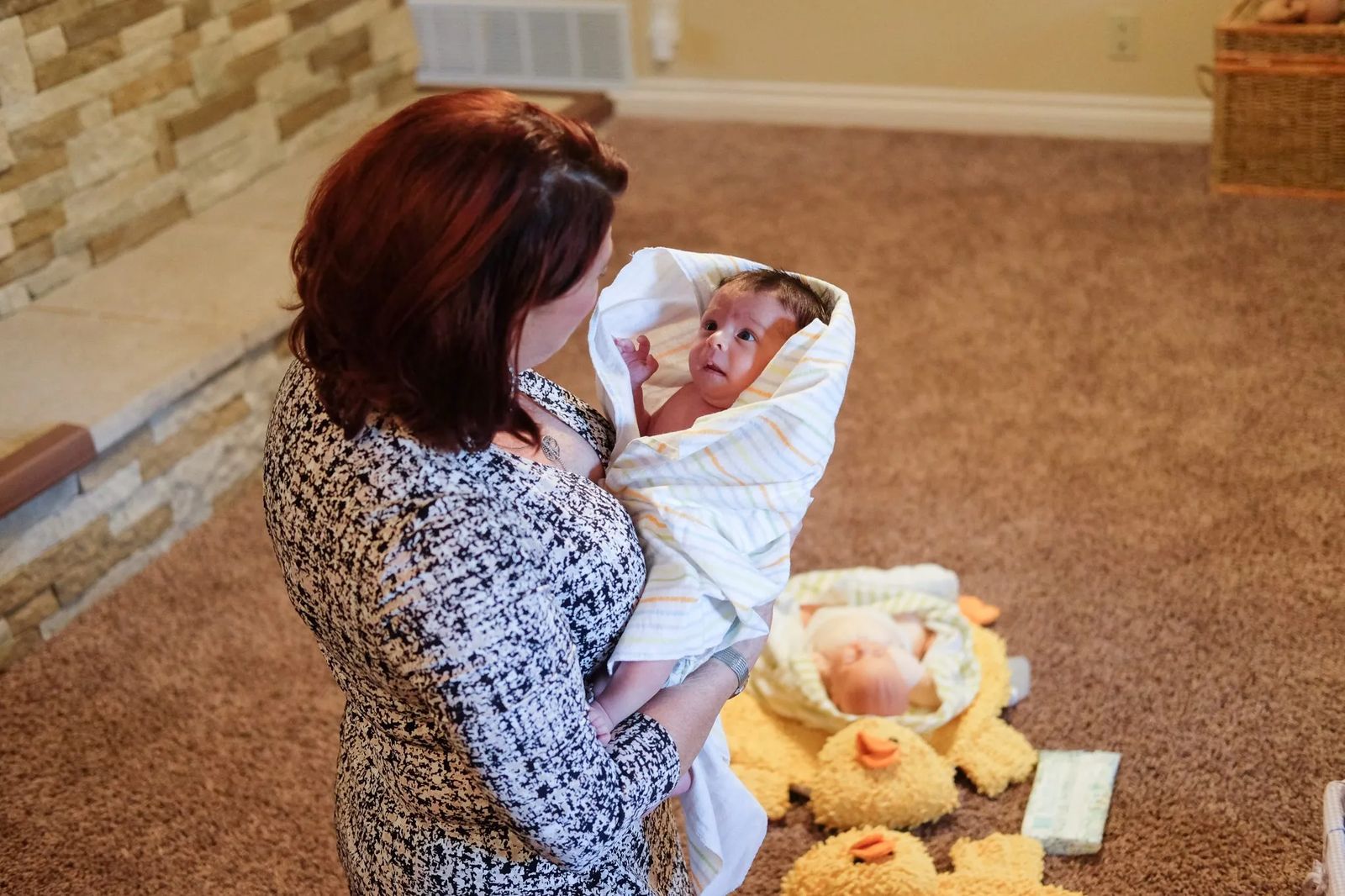
“Her medical and nursing experience was the perfect fit to round out our team of doulas and midwives,” says Rauch.
Sharon jumped at the opportunity. The team traveled to Ethiopia in June of 2016 with the intent of visiting the most rural, impoverished areas to conduct safe child birthing lessons. The first few weeks of their journey, they distributed some kits, but were frustrated they hadn’t found the areas where they were needed the most.
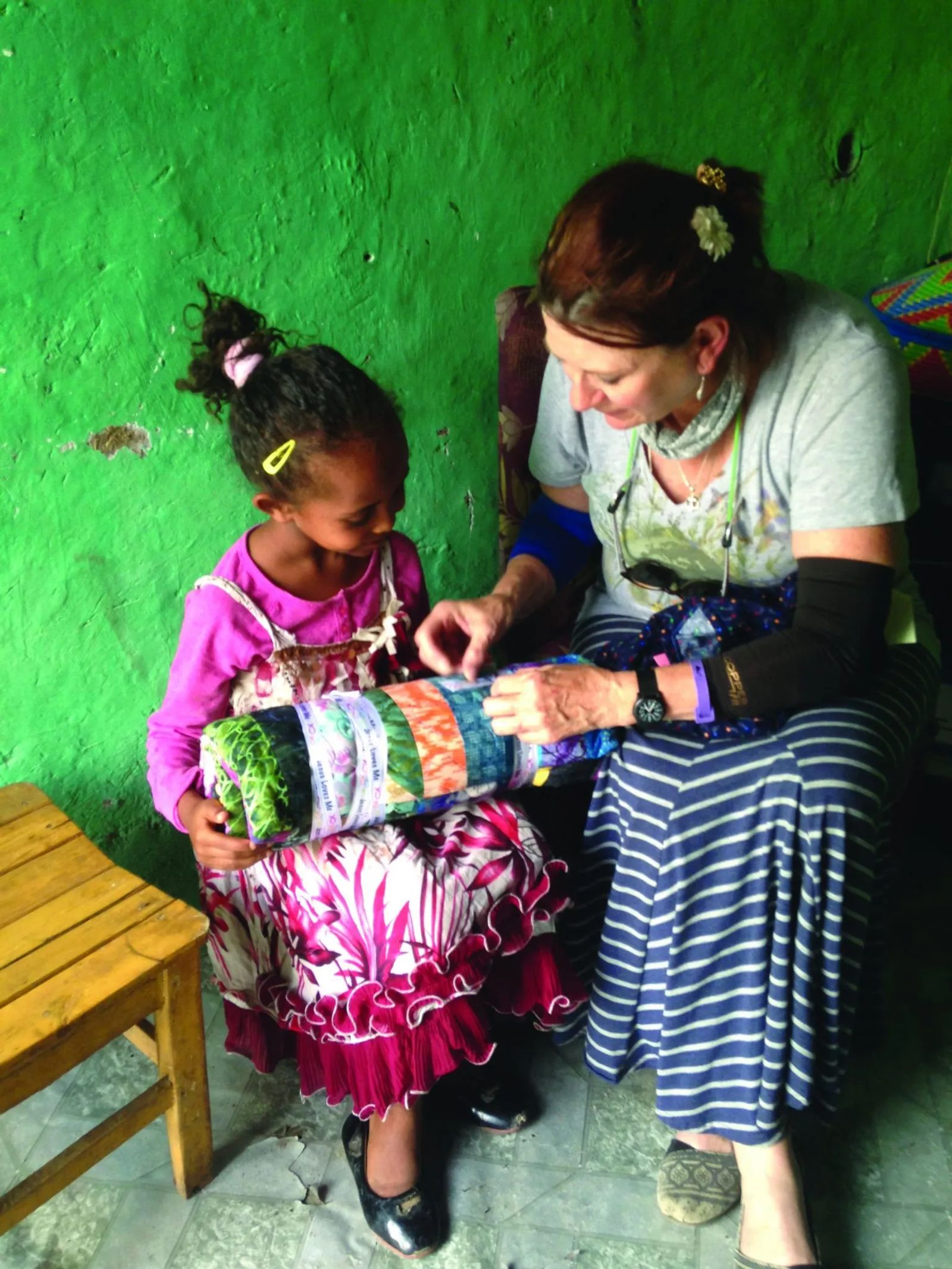
“I was almost embarrassed,” says Rauch, “We had 1,000 of these kits and the first four places we went, they really didn’t need them — they were mostly sufficient. I still had 900 kits and only two more days in our trip.”
A lead from a partner mission organization sent the team to a rural area and a small orphanage that housed 15 babies. It was called Talita Rise Up, and the director welcomed the group with open arms. In the meantime, a chance encounter with the chief officer of healthcare for the region secured the placement of the remainder of the greatly appreciated birthing kits.
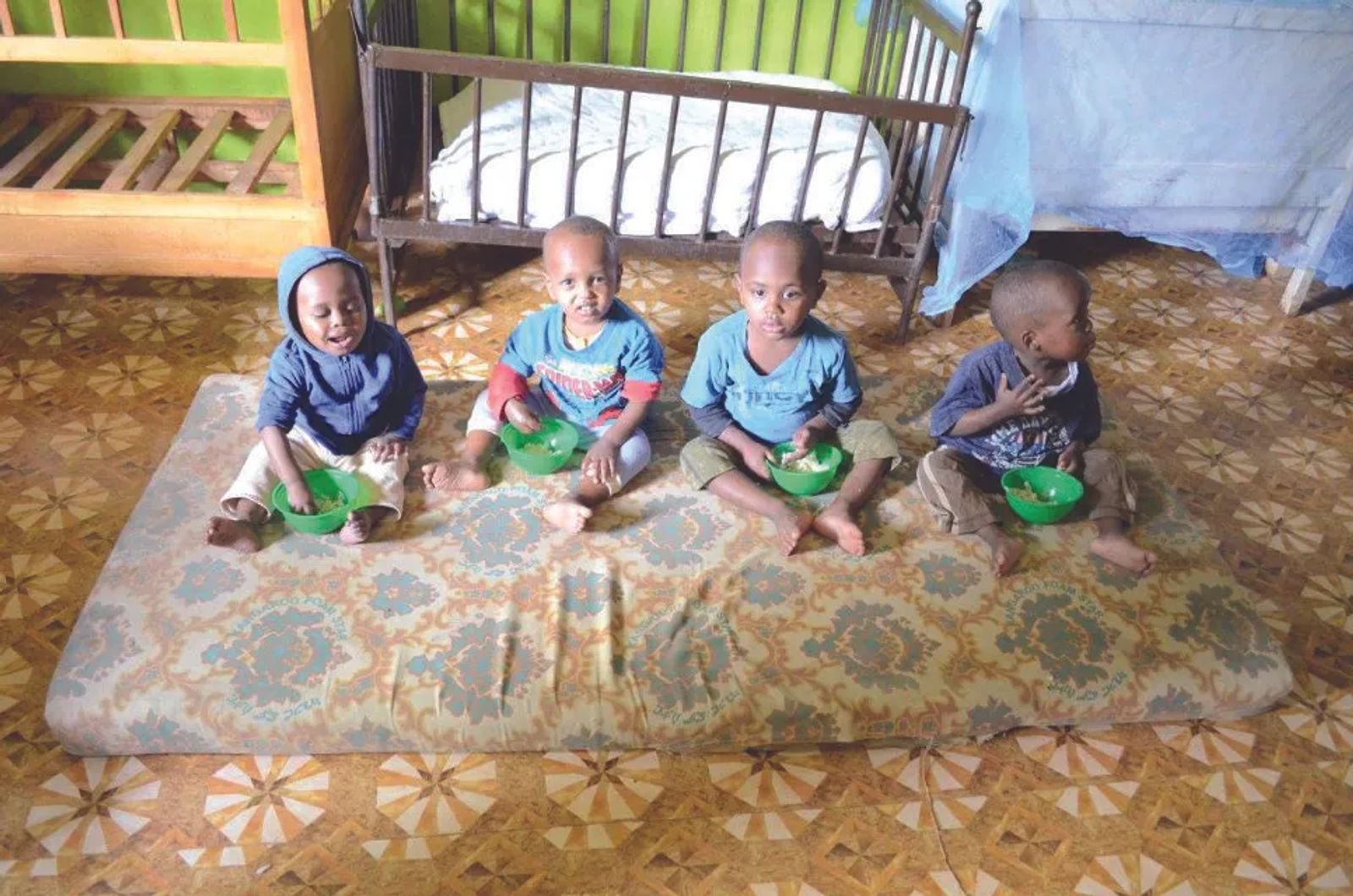
“Talita means little girl,” says Sharon. “I’ve always felt as if I was just God’s little girl, and he’s stayed with me through every hardship, led me on my journey.” The needs of the orphanage almost took them to their knees and made them realize their mission was, in some ways, just beginning.
“I thought the birth kits were the goal of our trip, but when we got home, we realized they were just a tool to get us to this place,” says Sharon. “We truly left part of our hearts at this orphanage.”
Sharon says it was hard not to be overcome with grief at times, to feel completely helpless in a sea of destitution, with none of the resources available in developed countries.
“At one clinic, a mother came to me with her baby who was stiff and listless. The translator said she hadn’t nursed in three days. She was warm to the touch. I suspected tetanus but had no technology available to assess her, I had no medicine, and the thought hit me – ‘I am about to watch this little baby die in her mother’s arms.’
“I knew all I could do was pray desperately, and as I did I watched the sweat start to pour off this baby. Pretty soon she startled, and her mother put her to her breast and she started suckling.” It was a miracle, but one that Sharon knows is not always the outcome. She knows if she spends much time with babies in developing countries, she is likely to witness a sadder ending.
“Sometimes compassion is all you can have, being with someone in a bad situation,” she says. “How awful would it be to face your worst day all alone? Whether you’re going to lose your baby or whatever it is you are facing — no one needs to be alone. Life just matters. It’s not up to us to determine which lives matters.”
With a refocused energy on serving this particular orphanage, the team returned home.
Unplanned, not unloved
Sharon’s lifetime of advocacy for life stems from a situation deep in her heart. When she was in her early 20s and still in college, she herself had an unplanned pregnancy, and chose to offer the baby to an adoptive family.
“I always knew that someday that baby would come back into my life,” she says. “Then, the day of my 63rd birthday, the year I lost my husband and had just returned from this heart-opening mission trip, I got a message on Facebook that said: ‘I am the baby you placed for adoption.’ It was complete raw emotion, it was overwhelming. I just broke down crying.”
As Sharon moves forward in corresponding with her biological son, Sharon says her “first baby” is not something she is ashamed of. “It makes me more passionate about pregnancy health centers – women in crisis need good counsel. They need to know what their choices are.
“It’s just so important for women to support each other – I don’t think it really even matters if you’re pro-life or pro-choice or a mother in Ethiopia or Billings or in a planned or unplanned pregnancy – all women really just want what is best for their baby. If a woman has support, she’ll make the best decision.”
Message in a bottle
After returning from Ethiopia, Sharon went back to work part-time as a lactation consultant at Billings Clinic. It was there that a small, sealed pouch labeled “Co-Op Donor Milk” caught her attention and reinvigorated her mission.
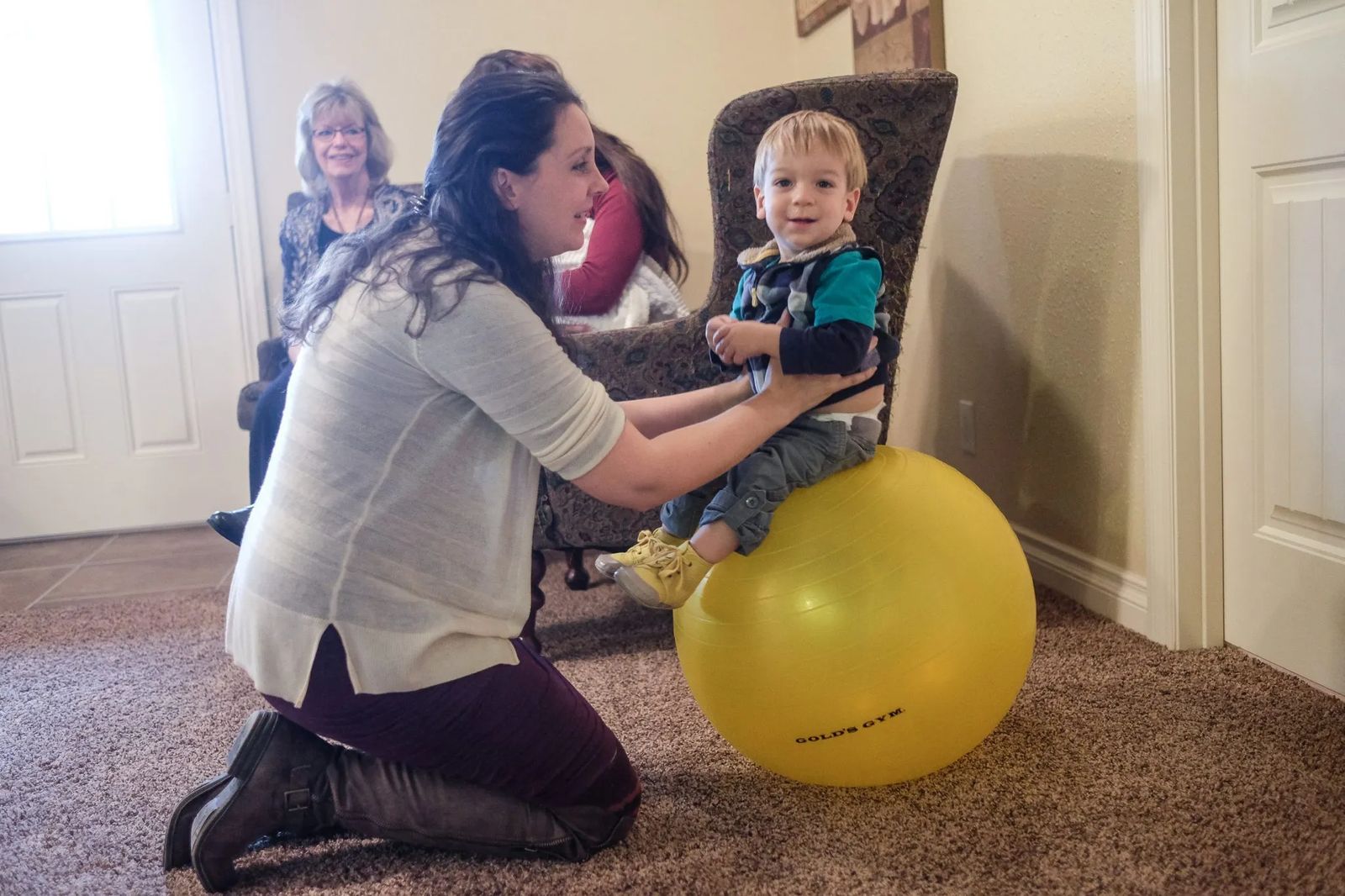
At the orphanage, one of the most heartbreaking problems they encountered was the prevalence of gastrointestinal infections in the babies. “They have a very limited supply of infant formula. Often, they send a volunteer on a daylong bus ride to buy formula, and there may only be two or three cans for sale. Furthermore, their water sources are unstable, so they often have to mix formula with contaminated water.”
Sharon discovered a company called Medolac had begun selling commercially pasteurized human breast milk. She knew firsthand the essential, powerful nutrition of breast milk, but the fact that these sterile, preserved packets didn’t need water added, refrigeration, plus they had a shelf life of three years made them a complete miracle product.
“I was absolutely astounded when I saw them – I couldn’t believe these were available. It was a perfect response to the needs at the orphanage,” she says. She immediately contacted Medolac and began working on a combination purchase and charitable donation for the orphanage.
Granting a future
With the non-perishable breast milk as a catalyst, Sharon attended a seminar by Melinda Gates that further spurred her ambitions for Talita Rise Up. She is currently researching grants and partnership opportunities to fulfill a five-step sustainability plan for the orphanage. The steps include: supplying basic needs such as nutrition and diapers, HIV testing, an immunization program, a preschool program, and a reputable adoption program. “In the past, the government viewed adoptions as ‘selling babies,’ and they got shut down. We need to partner with a reputable agency so we can match these babies to families as newborns, and eventually eliminate the need for the first four steps.”
A return trip to Ethiopia was planned for October to deliver donated Medolac pouches, new cribs and mattresses and develop a long-term strategy. However, two weeks before departure, political unrest and riots broke out in Addis Ababa, the capital city they were to fly into. Car-jackings and murders were occurring near their safe house, and the team reluctantly postponed their trip. In October, Sharon learned their work was taking a new turn. Rauch had been approached with a mission opportunity to provide birthing kits in rural Nicaragua. The team is tentatively planning a trip for summer 2017 while they continue to evaluate options in Ethiopia.
In the meantime, Sharon continues to live out her passion for life.
“I feel my story is about a deep caring for women and helping them love their babies. It’s about loving life, and how precious it is.”
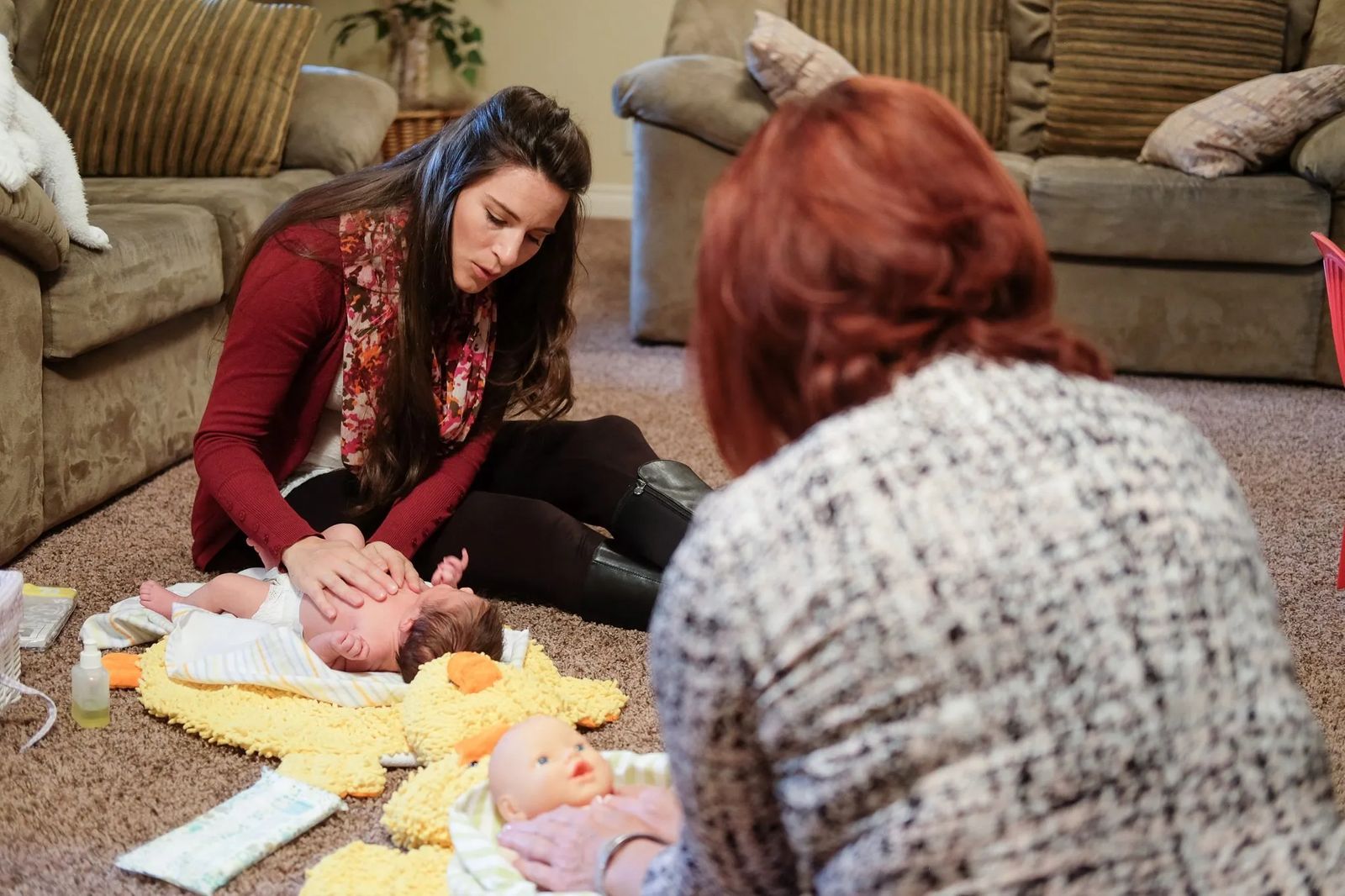
Sharon continues to support LaVie, to offer massage and to work as a lactation consultant. She attends a Bible study and church at Harvest Church, is a member of the V.F.W. Post 3177 honor guard, and stays involved in the lives of her children, who are now 34 and 31. She is active in the local chapter of the Combat Veterans Motorcycle Association and proudly supports her latest tattoo – this one a mark of joy: a vibrant Indian® motorcycle logo on her left leg that matches the shiny new Indian® 2015 Roadmaster® parked in her garage.
“After losing Budge, going to Ethiopia and holding those orphans, connecting with my first son … it all just shows me what an exciting new chapter this is in my life.”
An entry from her journal she kept while in Ethiopia sums up her world view succinctly: “But for the present time, a key promise in Corinthians is that generosity furthers human flourishing – both for the receiver and the giver. Generosity is a gentle and natural way to set the world right.”
The simplicities of safe birth
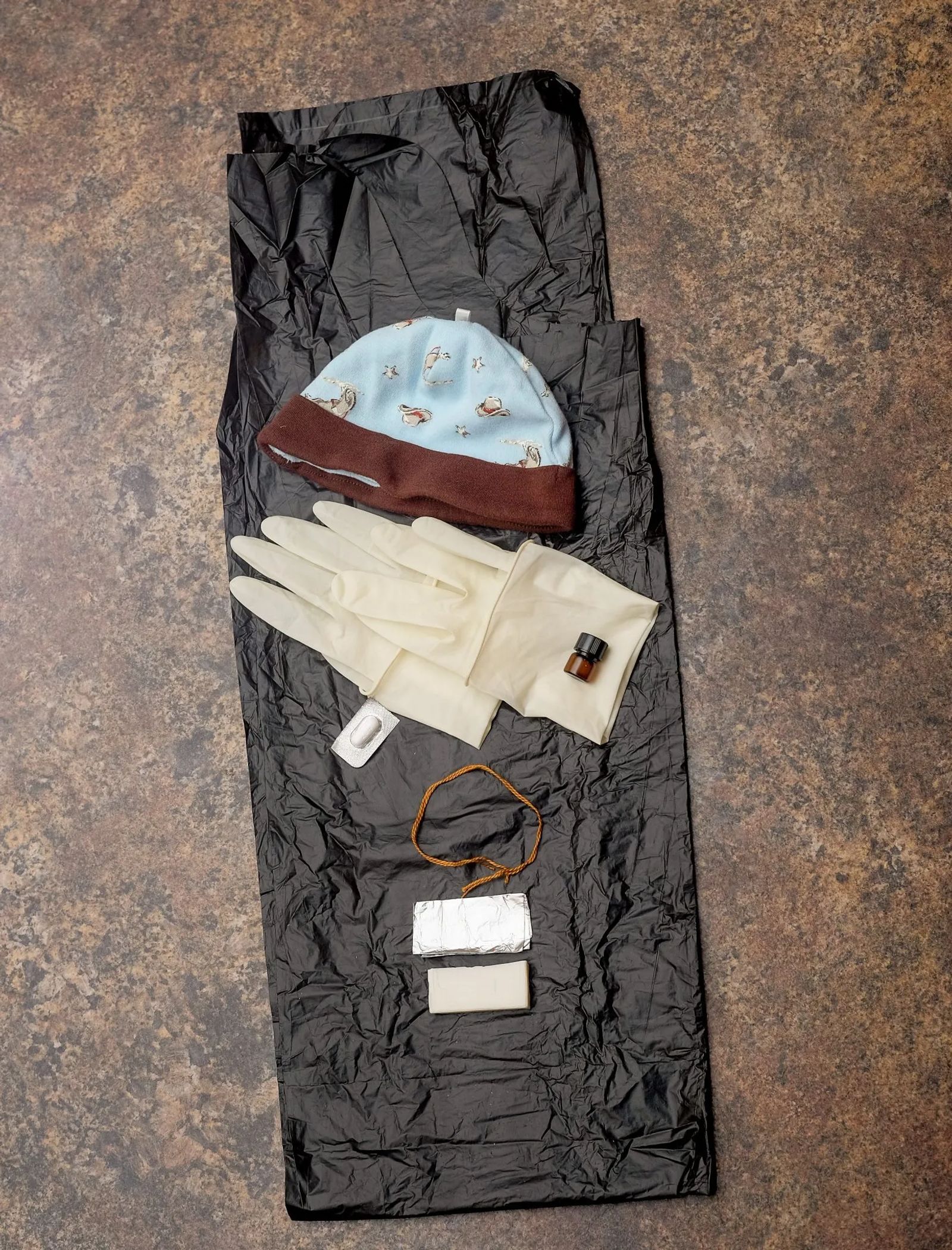
In a Western culture where giving birth is a display of opulence, it’s shocking the relatively small needs that can significantly decrease childbirth mortality in developing nations. Katrina Rauch, owner of First Breath Midwifery Care, conducted thorough research on what would be the most beneficial items to reduce infant and mother death to create the birthing kit, modeling some components after other kit providers and illustrating visual directions. Then she and her team assembled 1,000 kits to take to Ethiopia. Each kit included just eight items in a small Ziploc bag:
Plastic garbage bag – to be used as a surface area for the birth
Piece of soap – to wash and cleanse caregiver, mother and baby
Razor blade – to cut umbilical cord
Piece of string – to tie off cut umbilical cord
Hibiclens® – a small container with drops of the antiseptic, antimicrobial skin cleanser (used in surgical prep) to put on cord
Cytotec® – one pill used to induce uterine contractions and prevent post-partum bleeding (Billings Clinic donated the 1,000 doses)
Infant hat – to give to the mother to regulate warmth of the newborn
Illustrated directions – the visual illustrations of each item’s use transcend language barriers.
















